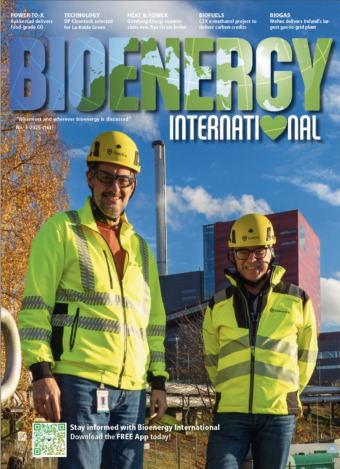The International Renewable Energy Agency (IRENA) and Methanol Institute (MI) have released a joint report that discusses the market status and outlook of renewable methanol for the main applications such as feedstock for petrochemicals and transport sectors such as shipping, and road transportation fuel. The report also elaborates on what policy actions are needed to facilitate the uptake of renewable methanol in the next decade.

The report “Innovation Outlook Renewable Methanol” was introduced during a live webinar with over 1 000 registered attendees on January 27, 2020. The webinar featured presentations by IRENA Dolf Gielen, Innovation and Technology Center Director at IRENA, and Greg Dolan, CEO of MI.
An expert panel reacted to the report, including Philip de Smedt, Group Manager, CEFIC, Randall Krantz, Senior Project Advisor, Global Maritime Forum, and Wei Anli, Deputy Director and Secretary-General of Methanol Automobile Promotion, China Ministry of Industry and Information Technology (MIIT).
Essential platform chemical
Methanol is essential for the chemical industry and represents an emerging fuel for a wide range of uses. Although largely produced from fossil fuels, it can also be made from sustainable, renewable-based energy sources.
The report identifies challenges, offers policy recommendations, and explores ways to produce renewable methanol at a reasonable cost.
Costs for renewable methanol are currently high, while production volumes are low. But with the right policies, renewable methanol could become cost-competitive by 2050 or earlier.
The need to mitigate climate change and eliminate carbon dioxide (CO2) emissions from all kinds of energy use has prompted rising global interest in renewable methanol.
The shift to such types – derived from biomass or synthesized from green (renewable-based) hydrogen and CO2 – could expand methanol’s use as a chemical feedstock and help to make industry and transport fuels carbon neutral.
Key recommendations in the report include:
- Ensure systemic investment throughout the value chain, including technology development, infrastructure, and deployment;
- Support market forces in the chemical sector, focusing on carbon intensity in consumer products;
- Acknowledge how renewable methanol can contribute to carbon neutrality in “green deals”, COVID-19 economic recovery packages, and hydrogen strategies;
- Translate the political will for carbon reduction into regulatory measures and support;
- Level the playing field for renewable methanol through public policy, including electrification and sector coupling measures, which would integrate renewable power supply with fuel demand throughout the economy;
- Encourage international co-operation on trade strategies to create jobs and foster competitive new “e-methanol” industries in both producing and consuming regions.


